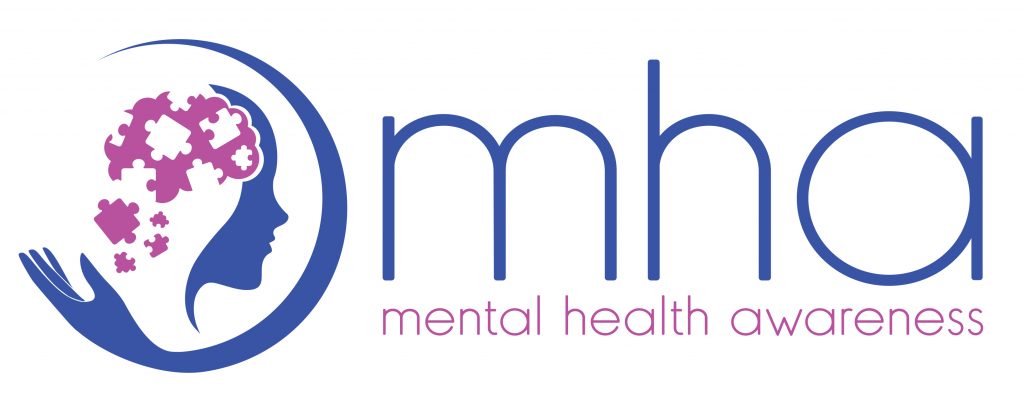Mental Health Awareness Week 2019

World Oceans Day: How to do your bit for the Ocean here in Plymouth
29th April 2019
Ivybridge Leisure Centre is transformed by huge £5.9 million investment
29th April 2019In a world that is continuing to open up to and making a consistent effort to understand those with mental health issues, it’s no surprise that Mental Health Awareness Week is now a firmer fixture on calendars around the UK and beyond. The week is organised by the Mental Health Foundation, and focuses on a major issue each and every year.
Mental Health Awareness Week 2019 takes place from Monday 13th to Sunday 19th May 2019. The theme for 2019 is Body Image – how we think and feel about our bodies.
In 2018, Mental Health Awareness Week was focused on stress. The Mental Health Foundation explains how “Research has shown that 16 million people experience a mental health problem each year, and stress is a key factor in this.” As part of its attempts to further open dialogue about mental health, the foundation organised a so-called “Curry and Chaat” initiative, where people got together with friends and enjoyed their company over a curry, whilst raising money for good causes.
MENTAL HEALTH IN THE UK
Mental health issues affect approximately 1 in 4 adults and 1 in 10 children according to the NHS. In England, 1 in 6 people report experiencing a common mental health problem – such as anxiety and depression.
Mental health problems are a common human experience and they can often be upsetting, confusing and frightening.
There are many different types of mental health problems, some of which have the same symptoms as others. The most common mental disorder in the UK is anxiety and depression, with 7.8% of people meeting the criteria for diagnosis. According to the Mental Health Foundation, mixed anxiety and depression has been estimated to cause one-fifth of days lost from work in Britain.
Mental health research receives only 5.5% (£115 million) of total UK health research spending.
Mental health services in the UK are under a lot of pressure. These services have long waiting times and in some parts of the country, lack specialist services. According to the Mental Health Foundation in the UK, the estimated costs of mental health problems are £70-100 billion each year and account for 4.5% of GDP.
Mental health problems are one of the main causes of the burden of disease worldwide. In the UK, they are responsible for the largest burden of disease – 28% of the burden, compared to 16% each for cancer and heart disease.
The Guardian revealed that coroners had issued NHS providers of care with legal warning notices over 271 deaths of mental health patients that occurred in England and Wales between 2012 and 2017 following failings in the treatment they had provided.
One of the key elements behind this is due to the understaffing in the NHS, especially in mental health services. Between 2009 and 2017, the number of mental health nurses fell by 13%. The NHS bosses know that they are constrained by serious understaffing, but they are aiming to shorten waiting times and increase access to mental health care for children and adults.
MAINTAINING GOOD MENTAL HEALTH
If you or someone you know is suffering from a mental health problem, it is important to make sure that you or your friend/family member are seeking the right advice.
It’s not always obvious that someone is experiencing a mental health problem unless they tell you outright, it’s best to respond sensitively to someone who seems troubled.
Often it is difficult to know what to do if you or someone you know is experiencing a mental health problem, but as soon as you are aware that there’s an issue, it’s important not to wait. Seeking professional help is not always everyone’s first step – as it can be very difficult for someone to accept that they’re suffering from a mental health problem – the best way to help yourself or others who are experiencing problems with their mental health is simply to talk to them.
The stigma behind mental health continues to fade, with more and more people seeking professional help and more individuals openly talking about their own mental health experiences.
In Time to Change’s attitudes to mental illness 2014 report, they illustrated that attitudes towards mental health problems are continuing to change for the better.
The number of people acknowledging that they know someone close to them who has had a mental illness increased from 58% in 2009 to 65% in 2014. 40% of people surveyed said they would be comfortable talking to their employer about mental health problems, although nearly half (48%) said they would feel uncomfortable, showing that there is still some way to go to improve attitudes.
HOW TO ACCESS SUPPORT
 Mental health services are free on the NHS, but in most cases, you will need a referral from your GP to access – however, some do allow people to refer themselves, this can include services for drug and alcohol problems, as well as psychological therapies (IAPT) services.
Mental health services are free on the NHS, but in most cases, you will need a referral from your GP to access – however, some do allow people to refer themselves, this can include services for drug and alcohol problems, as well as psychological therapies (IAPT) services.
If you need immediate help, there are services where you can speak to someone right away. If you feel as if you can’t keep yourself safe right now, you can go to any Accident and Emergency (A&E) Department; call 999 and ask for an ambulance to take you there, or ask someone else to call 999 for you or take you to A&E.
If you need help urgently but don’t want to go to A&E. there are other places to seek help. Call Samaritans on freephone 116 123 (they’re always open and there to listen), contact your GP and ask for an emergency appointment, contact NHS 111, or contact your local crisis team (CRHT) if you’re under their care. These services are there for those who are struggling to cope with their mental health and know that these options are there are useful for anyone who needs access to support.
More information about accessing mental health services can be found on the NHS website. Alternatively, there is also more information on various mental health charity websites that anyone can access. Places such as Mind or the Mental Health Foundation list have guides on their websites that can aid you in finding the right path on your journey.
You are not alone and there are people who are willing to stand by you and walk you through every step for as long or as little as you need it.
Mental Health Awareness (MHA) is a not for profit organisation that actively support, fundraise, educate and create awareness for all conditions and all levels of mental health. Their aim is to make a positive difference to people’s mental health and wellbeing.
They will actively seek to provide help and services to people living with the day to day challenges of these disorders. We do this by running events and fundraisers that support and help mental health charities.
MHA will actively provide a hub for anyone suffering or knows someone who is suffering and in need of a safe and trusted community to share stories and find support for others who are dealing with mental health disorders or caring for a family member with a mental illness. They believe that, with the right personalised support, anyone with a mental health need can live the life they want to live.
To find out more or to get involved contact MHA through the website mentalhealthawareness.org.uk.





